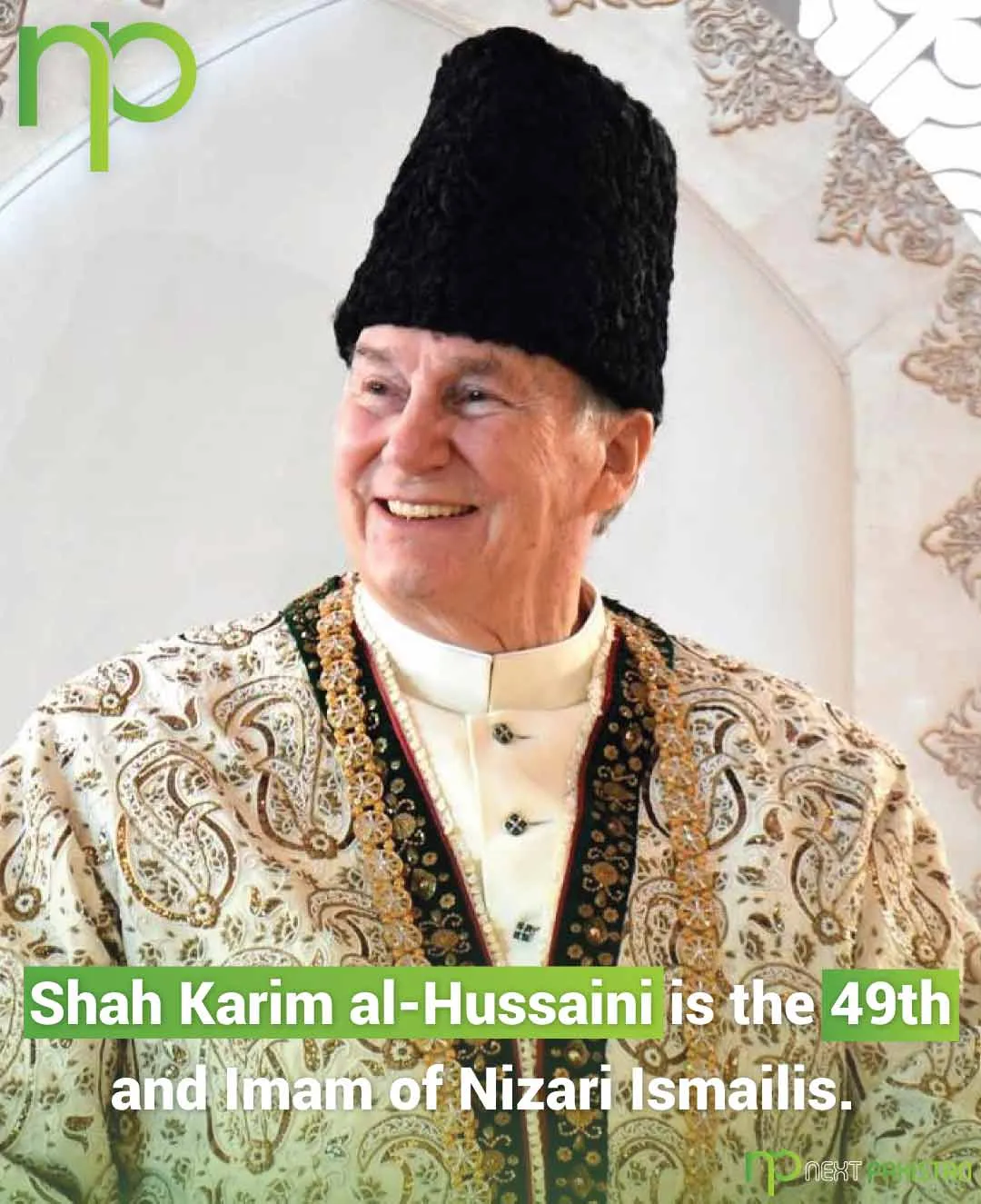
- March 12, 2024
- ubaidah khan
- 0
Introduction:
Shah Karim al-Hussaini, the Aga Khan IV, stands as a prominent global figure known for his leadership, philanthropy, and advocacy for pluralism. As the spiritual leader of the Ismaili Muslim community, Aga Khan IV has played a pivotal role in fostering development, education, and cultural preservation. Saying he’s directly related to the Islamic prophet Muhammad, Aga Khan IV traces his family line through Muhammad’s cousin and son-in-law, Ali, who is recognized as a leader by Nizari Ismailis, and Ali’s wife Fatima, Muhammad’s daughter from his first This article explores the life and impact of Shah Karim Aga Khan IV, highlighting key aspects of his leadership journey.
Early Life and Ascension:
Shah Karim al-Husayni, born on December 13, 1936, is known as Mawlānā Hazar Imam to his Ismaili followers and Aga Khan IV to others. Prince Karim spent his early years in Nairobi, Kenya, receiving private tutoring for his education. Later, he attended the prestigious Institut Le Rosey in Switzerland for nine years, known as the most expensive boarding school globally. Despite starting with private tutoring in Nairobi, he eventually graduated with fair grades from Institut Le Rosey.
Originally admitted to MIT with plans to study science, his grandfather, Aga Khan III, vetoed the decision. Instead, Aga Khan IV attended Harvard University, majoring in Islamic history. His transition to becoming the Aga Khan happened suddenly when his grandfather passed away, thrusting the university student into the position of the Nizari Imam.
Graduating from Harvard University in 1959, two years after assuming the role of the Imam, Aga Khan IV received a Bachelor of Arts degree in History with Cum Laude honors. During his university years, he was a member of The Delphic Club and excelled as a member of the Harvard Crimson men’s soccer team.
Beyond his academic pursuits, the young Aga Khan was an accomplished downhill skier, even representing Iran in the 1964 Winter Olympics. His life took a turn filled with immense responsibilities, transitioning from a university student with aspirations in history to the esteemed position of the Nizari Imam.
He became the 49th leader of Nizari Ismailis when he was just 20 years old on July 11, 1957, taking over from his grandfather, Sir Sultan Muhammad Shah Aga Khan III. This section delves into his early years and the responsibilities he undertook as the spiritual leader of the Ismaili community.
Family and children
Aga Khan IV, is married to Begum Salimah Aga Khan, formerly Sarah Croker-Poole. They got married on October 22, 1969, in Paris, France. Begum Salimah Aga Khan has been actively involved in various philanthropic and social initiatives alongside her husband. Shah Karim al-Husayni, Aga Khan IV, and Begum Salimah Aga Khan have four children:
- Princess Zahra Aga Khan
- Prince Rahim Aga Khan
- Prince Hussain Aga Khan
- Princess Khaliya Aga Khan
Philanthropy and Development Initiatives:
One of the defining features of Shah Karim Aga Khan IV’s leadership is his commitment to philanthropy and development. Explore the diverse initiatives undertaken by the Aga Khan Development Network (AKDN), which spans areas such as healthcare, education, economic development, and cultural preservation across the globe.
Educational Contributions:
Under the guidance of Shah Karim Aga Khan IV, education has been a cornerstone of the AKDN’s efforts. This heading delves into the establishment of educational institutions, including the Aga Khan University and the Aga Khan Academies, emphasizing the role of education in fostering positive change.
Cultural Preservation and Heritage Conservation:
Aga Khan IV has been a staunch advocate for the preservation of cultural heritage. This section explores his initiatives in heritage conservation, including the Aga Khan Trust for Culture, which works to revitalize historic cities and protect cultural landmarks.
Global Diplomacy and Advocacy:
Shah Karim Aga Khan IV has been an influential voice on the global stage, engaging in diplomacy and advocating for issues such as religious tolerance, pluralism, and sustainable development. Examine his role in fostering dialogue and understanding among diverse communities worldwide.
Challenges and Controversies:
No leadership journey is without challenges. This heading discusses the various challenges faced by Shah Karim Aga Khan IV, including controversies within the Ismaili community and external pressures, and how he navigated these complexities.
Aga Khan’s Vision for the Future:
As a forward-looking leader, Shah Karim Aga Khan IV has outlined a vision for the future that encompasses social, economic, and cultural development. This section explores his aspirations and the ongoing work of the AKDN in shaping a better tomorrow.
Legacy and Recognition:
Shah Karim Aga Khan IV’s leadership legacy is widely recognized and celebrated. From receiving numerous honors and awards to leaving an indelible impact on communities worldwide, this heading reflects on the enduring legacy of a global leader.
Conclusion:
In conclusion, Shah Karim Aga Khan IV’s journey as a spiritual leader, philanthropist, and advocate for positive change has left an indelible mark on the world. His commitment to improving the quality of life for individuals and communities across the globe showcases the transformative power of visionary leadership.